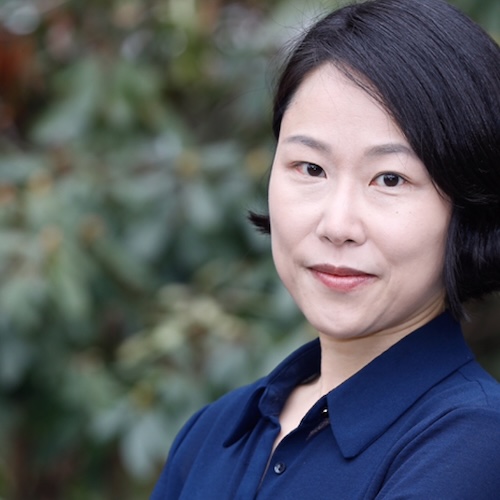
Ahlin Min, '18
Vice President
Phnom Penh University of the Arts
"There was no way for me to pursue an on-campus master’s program, so I was very glad to find an affordable option that allowed me to be remote and asynchronous. Even though I wasn’t meeting people face-to-face, I was able to connect with them intellectually and share ideas, which was really empowering."
Working in higher education is a family affair for Ahlin.
Her parents founded Cambodia’s Phnom Penh University of the Arts, the first private arts institution to be accredited by the country’s Ministry of Education, Youth and Sport. Ahlin played a key role in the university’s inception, accreditation and evolution.
Having seen the limited access to arts education in Cambodia, Ahlin and her family
sought to make it more readily available. Thanks to their tireless efforts, hundreds
of Cambodians have been able to pursue careers that were once out of reach.
What sparked your decision to pursue a master’s in higher education administration?
Working to establish Phnom Penh University of the Arts was actually my first real administrative experience. The first year was a real eye-opener, and I started to wonder if I had the right background or enough knowledge to be as effective as I could be. So I was very excited when I found out about this program. I could do everything online, and as a state school it was more affordable. I was already familiar with Stony Brook and knew it was a great institution, so it wasn’t a hard decision. It’s actually the only place I applied to.
How did the HEA program impact your work at Phnom Penh?
When you’re building a university from scratch, there’s no real division of labor like there is at an established institution. We had to figure out how to hire and train employees, recruit entire classes of students, explain what the coursework would entail and what kinds of jobs would be available.
Getting my master’s made me realize that universities at all stages have to go through similar processes. I gained a scope of knowledge to help tackle these challenges head-on. I also learned about things I didn’t even know there were classes on, like leadership development and crisis management, which enabled me to plan ahead, adapt to uncertainties, and facilitate constant growth for the university.
Were you new to online learning? What did you learn from the asynchronous experience?
I remember not quite knowing what online learning was going to look like at the time. It turned out pretty awesome, because it takes away the restriction that’s put on in-person courses – such a diverse mix of people are able to join. We all shared the same motivation despite coming from different disciplines, and I gained so many perspectives that I didn’t have before. I also saw a huge improvement in my writing skills thanks to the asynchronous format.
Did you have any favorite professors?
I really connected with Dr. Marilyn London. We walked similar journeys as piano performers who transitioned into higher ed administration, so I felt like she understood me on a deeper level. She was the teacher for my first class in the program, and I remember being a bit overwhelmed with all the reading and writing required since English isn’t my first language. I emailed her about it and she provided some one-on-one support, which I was super grateful for. But I still wasn’t too happy with my performance in the class.
Fast-forward to 2018 and I had her again for my project seminar course. I ended up getting an A, and she actually wrote me a recommendation letter for the job I got after graduating. The relationship we built combined with how much I grew from the beginning to the end of the program was probably the most memorable experience I had.
Did you take on an internship?
While I was finishing up the degree, I applied for an academic advising internship at Pace University, which led me to a full-time position as an academic advisor there. I was very interested in gaining experience at an established university that’s been around for decades, and I found that a lot of things, fundamentally, are similar in a startup. I came back to Phnom Penh after about three years, and in 2024 I took my current role as Vice President.
Ready to take the next step?
We are happy to help! Connect with an admissions counselor.

